




life is supposed to be fairy like, filled with fascination, real and imagined adventures and endless fun. But for thousands of children living in our discoloured rainbow nation, childhood is decimated by prehistoric socio paths. We live in a country where childhood is under threat and oftentimes is the first our boys and girls lose.
Some neighbourhoods are so dangerous that for children and their families, every day is a fierce struggle to stay alive. Violence, poverty, inequality, unemployment, sub stance abuse, and socio-economic exclusion form layer upon layer of enormous hurdles to escaping vulnerability.
A number of our country’s children are subjected to extreme levels of abuse, exploi tation and violence; not to mention hunger and malnutrition. A blundering bureaucracy is unfortunately worsening current problems and/or trigger off new ones.
In these dangerous neighbourhoods, institutions tasked with the responsibility to protect children are every so often incapable or unenthusiastic to do so.
The extensive injustice and dangers more than infringe on the rights and jeop ardise the future of children; they eternise generational rhythms of hardship and disparity that will inevitably chip away at the stability and security of the country.
How can we expect a better future when among us some monsters feed voraciously on the lives of children?
Beasts whose nucleus of emotions tint and distort their view of life and their vile ac tions are revealed in their ridiculous animos ity towards children.
As a society that pretends to be up right and caring, we are different from the perpetrators, the mismanaged police service and unjust justice. We have tossed out our children and teenagers to be swallowed up by the country’s high rate of violent crime.
Not only are our streets that are danger ous for children, but also our homes. There is a sizeable number of children, some aged five and under who are victims of lethal violence inflicted not by a deranged criminal carrying a gun or a knife standing on alert in a dark street corner, but by parents, relatives and friends in what is supposed to be a safe place…HOME! There is no denying that chil dren in some households children are living a nightmare, while the other grownups look the other way and choose to remain silent.
The rape, abuse, murder and mutilation of children is where our justice system often spectacularly fails. Many cases keep falling through the cracks...suspects are granted
bail at the drop of a hat.
Take the case of 4-year-old Bokgabo Poo, and many others who lost their in nocent life because of the ineptitude of the system. The accused in the rape, murder and mutilation of little Bokgabo was allegedly committed by a man who was out on bail for the rape of a 9-year-old.
An emotional Irvin Ndlovu, Bokgabo’s dad put was correct when he said: “If the law had done its job properly, he would still be behind bars, and probably my daughter would still be alive today.

“It is so painful because my daughter and I were very close. She wouldn’t want anyone else to come close to me. My daughter is out there lying in pieces, and here we are, feeding him with our tax money. I am feeling so much pain. My heart was shattered into pieces when I heard Ndlovu say: “The griev ing process hasn’t begun because I still don’t know where to go from here. I need to bury my child, and he just needs to tell us what happened to the rest of the missing body parts.”
In an interview with apnews.com on 22 December 2020, child protection specialist Joan van Niekerk, related how several cases were “tainted by police ineptitude and cor ruption”.
“I sometimes go through stages when I am angrier with the system than I am with the perpetrators and that’s not good,” she told apnews.com
She also added that justice for children in South Africa “is unacceptably hard to achieve.”
And we are all too well aware the failure of the justice system has led to more deaths.
The challenge is up to us to force the state to change course. There are enough men who can stand up and halt the whole sale violation of our children’s right to life and dignity. The time has come for men, espe cially, to dedicate themselves to activities that can rehumanise the dehumanised.
We can no longer afford to be keyboard activists and armchair protestors. As that marvellous band, Stimela, once pleaded, we must: See the world through the eyes of the child. Let us join hands and be encouraged by Stimela as they were led in the song by Coyote:
With a little help from our friends
From our friends in high places
From our friends in even higher places
We can save the child
Now won’t you please be responsible
Now take your time to take think about the needs of a child
their world we’re living
IS A DEEPLY EMBEDDED
IS KEY TO
The brightest star of South Africa’s new generation of jazz musicians, pianists, compos ers, and bandleaders Nduduzo Makhathini is one of the most extraor dinary and sought-after talents in the world.
Makhathini grew up in the lush and rugged hills of Mgungundlovu in KwaZulu-Natal; a landscape in which music and ritual practices were symbi otically linked.
The area is significant historically as the site of the amaZulu king Dingane’s kingdom between 1828 and 1840. It’s important to note that amaZulu, in fact, the African warrior code, is deeply reli ant on music for motivation and healing. This deeply embedded symbiosis is key to understanding Makhathini’s vision.
The church also played a role in Makhathini’s musical understanding, as he hopped from church to church in his younger days in search of only the mu sic. The legends of South African jazz are deep influences as well, in particu lar Bheki Mseleku, Moses Molelekwa, and Abdullah Ibrahim.
“The earlier musicians put a lot of emotions in the music they played,” he says.
“I think it may also be linked to the political climate of those days. I also
feel there is a uniqueness about South African jazz that created an interest all around the world and we are slowly los ing that too in our music today. I person ally feel that our generation has to be very conscious about retaining these nuances in the music we play today.”
Through his mentor Mseleku, Makhathini was also introduced to the music of John Coltrane’s classic quartet with McCoy Tyner. “I came to under stand my voice as a pianist through John Coltrane’s A Love Supreme,” he says.
“As someone who started playing jazz very late, I had always been looking for a kind of playing that could mirror or evoke the way my people danced, sang, and spoke. Tyner provided that and still does in meaningful ways.”
Makhathini also cites American jazz pianists including Andrew Hill, Randy Weston, and Don Pullen as significant influences.
Active as an educator and re searcher, Makhathini has performed at renowned festivals including the Cape Town International Jazz Festival and the Essence Festival (in both New Orleans and South Africa), and in 2019 made his debut appearances at the Blue Note Jazz Club in New York City, as well as Jazz at Lincoln Centre where he was a featured guest with Wynton Marsalis and the Jazz at Lincoln Centre Orches

tra on their 3-night musical celebration, The South African Songbook in Rose The atre.
He is a former member of Shabaka Hutchings’ band Shabaka and the Ancestors appearing on their 2016 album Wisdom of Elders and has also col laborated with artists including Logan Richardson, Nasheet Waits, Tarus Ma teen, Stefon Harris, Billy Harper, Azar Lawrence, and Ernest Dawkins.
In addition to producing albums for his peers (such as Thandiswa Mazwai’s Belede and Tumi Mogorosi’s Project Elo), Makhathini has released eight albums of his own since 2014 when he founded the label Gundu Entertainment in partnership with his wife and vocalist Omagugu Makhathini.
The albums earned him multiple awards and include Sketches of Tomor row (2014), Mother Tongue (2014), Listening to the Ground (2015), Matunda Ya Kwanza (2015); Ilonggo: The African Peace Suite (2016), Inner Dimensions (2016), and Re flections (2016). His 2017 album Ikhambi was the first to be released on Univer sal Music South Africa and won Best Jazz Album at the South African Music Awards (SAMA) in 2018. His Blue Note debut Modes of Communication: Letters from the Underworlds was named one of the “Best Jazz Albums of 2020” by The New York Times, and was followed by In the Spirit of Ntu in 2022.
In the spirit on Ntu is the second album by Makhathini to be issued on the Blue Note imprint; the first – Modes of Communication: Letters from the Under worlds – was named one of the best jazz albums of 2020 by The New York Times. But In the Spirit of the Ntu is the first to be released on the Blue Note Africa imprint, and suggests Universal is look ing to give welcome exposure to some of the dynamic young musicians on the South African/African jazz scene.
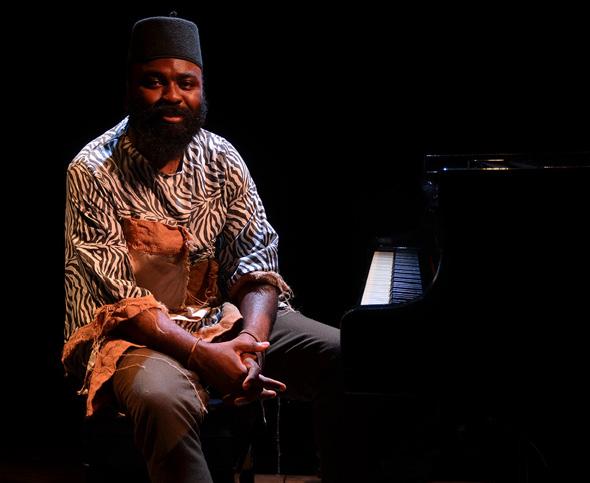
This album is a good example, cov ering a wide emotional range, from the dynamic Abantwana Belanga to the reflec tive introspection of Nyonini Le or Senzeni Na. Makhathini – formerly a member of Shabaka Hutchings’ band Shabaka and the Ancestors appearing on their 2016 album Wisdom of Elders – speaks of how the album was conceptualised in a “time of confusion and conflict’ in his homeland, and on tracks such as the minor-keyed Amathongo, he succeeds in implying darkness and mystery, de spite the bright tempo, a feeling which persists in the ballad-like Omagugu with an Anna Widauer vocal and a thought ful trumpet intervention by Robin Fassie Kock.
Inspired by the symbolism and traditions of Makhathini’s background
in Zulu traditions, his playing on the un bridled Abantwana Belanga, is suggestive of McCoy Tyner, a formative influence, something he addresses below.
You have referred to formative influences – Abdullah Ibrahim, Bheki Mseleku, Coltrane, and McCoy Tyner. To what extent would you say US mas ters influence South African jazz today as opposed to ‘local heroes’ such as Ibrahim, Kippie Moeketsi, etc?
Historically, there has always been a connection. Jazz was born through a moment of displacement: geographic, cultural, religious and linguistic. So, it is music that came as a result of some form of victimisation.
It came through the brutalities of Transatlantic exile and local forms of displacement.
These are some of the shared memories both in Africa and in the di aspora. The masters you mention were in constant dialogue over the Atlantic ocean. As a follower of all these people, I have always been interested in what connects this collective memory, so I draw from all of them equally.
They offer different things at various points of my journey; I am attracted to both Mseleku’s sound and the under pinning conceptual frameworks. I could say something about each of the above, and there are connections between all of them.
You refer to the tension between ‘homegrown’ and ‘adopted’ practices but there are instrumentals where such referential meanings don’t appear to define the music, rather they seem to subjectively inspire it, such as the influence of McCoy Tyner… Music in African cultures is often a result of experience, it is an expression of a locatedness; sounds emerge as gestures expressing a broader feeling of being. Sound does not occur outside of functionality. Our ancestors com posed songs for every occasion that were linked to a cosmological calendar, and these were not uttered outside of their contextual settings. I am the people who were experiencing pain and needed to vocalise through the symbols of fire. Your reference to Tyner is evidence that he is not separate from those people too.
Does the influence of US jazz and the cultural values it implies contrast with the conflict and confusion you speak of?
Sounds cannot be read outside of history… similarly Africa, as a point of origin, cannot be separated from ‘jazz’ – the ‘jazzy-ness’, a term I use to refer to pre-slavery sound approaches, has always been there in African music; improvisation, swing, form and synco pation – these are not new concepts in Africa. – jazzwise.com
 By Eddie Mokoena
By Eddie Mokoena
There was once a time when some ailments were dismissed as “white men’s diseases” and these included among them, prostate cancer.
According to the 2022 Prostrate Cancer Foundation study done in collaboration with the Urology Hospital, prostate cancer is the most common cancer affecting men in South Africa.
Approximately, 1 in 4 black men and 1 in 8 white males have prostate cancer. Fur thermore, international and local research indicates that the risk for aggressive pros tate cancer is higher in black men.
Zodwa Gumede, 70, concurs with the study’s recommendation that men of African origin screen from the age of 40 because the study’s findings further reveal early detection is key and those with a family his tory of prostate cancer should be screened often.
This view was also shared by Malcolm Anthony, Chief Executive Officer of the Urology Hospital in Pretoria. Gumede’s husband is a prostrate survivor and was first diagnosed 21 years ago at age 50. She told Men’s Voice that often there are no symptoms of prostate cancer in the early stages.
However, “couples need to often ob serve each other closely because they may notice some abnormalities. These abnor malities amongst men especially include urinary flow problems, spending a long time in the loo, blood in the urine as well as lack of sexual appetite”.
“Also they may suffer from severe con stipation. This is due to the urethra’s proxim ity to the rectum. If the gland grows it blocks the bowel and then it packs up”.
Gumede spoke on behalf of her 71-yer old husband who now has Alzheimer’s (no correlation with prostate cancer).
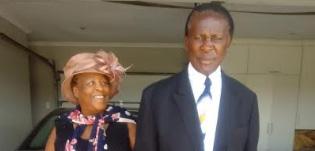
She emphasised the benefits of early detection because at that stage the gland could be scrapped (not all of it). Sometimes the gland is not even cancerous yet. There fore, it will be treated with medication and patients will not have to undergo chemo therapy or radiation treatment, Gumede advised. Andrew Oberholzer, CEO of the Prostate Cancer Foundation agrees with Gumede’s assertion adding that, “screen ing regularly may have the benefit of early cancer detection when it is still potentially curable. Once it has metastasized there is no cure”.
Men from the age of 40 in the black community, especially those with a family history of prostate or breast cancer must make it a habit to test regularly.
“Regularly testing by couples espe cially has a potential to minimise the spread of cancer and they (those detected with cancer) could live a longer and healthier lifestyle “, Gumede said.
Even before her husband was detected
with prostate cancer, Gumede was first ex posed to it when her father had it. Like her husband, her father too was fortunate as it was detected early and he went for treat ment. “My father was fortunate because it was detected early and soon after he embarked on a healthy lifestyle. He lived until he was 90. So when my husband was diagnosed I was better exposed and we im mediately made all the necessary interven tions soonest”, she said.
She said this way is safe and has the potential to arrest cancer from spreading to
other vital organs. Her 71-year-old husband has been on medication ever since and cancer has been dormant.
A professional nurse Gumede is articu late about her husband’s condition. Her advice to men is that early detection is key. If you wait until late, she said there is a risk that the gland has become cancerous. She continued: “by then it could lead to impo tency and they may experience excruciating pains. The gland can also grow haywire, blocking the urinary tract which could lead to kidney failure”.
If your answer is yes, worry no more! The days of expensive adoption process, which can cost anything between R12000 to R20000 or more, are all gone. Government now offers a free service to qualifying Parents/Guardians who wish to adopt children. “The Gauteng Department of Social Development is leading this process in the province, and hereby wishes to inform the citizens about this new

Properly assessed by an adoption Social Worker
Children’s Second Amendment Act, Act No. 18 of 2016 introduced the inclusion of
Social Worker in the employ of the Department of Social Development into the
of “Adoption Social Worker” to render adoption services. These amendments have brought forth new and certain responsibilities in terms of its
of Adoption as a specialty service that Social Workers in the
of the Department of Social Development did not possess. The Child Protection Organisations and Social Workers in Private Practice were
this service in the province.
The South African Council for Social Service Professional (SACSSP) in conjunction with National Department of Social Development and the Services for Children Directorate has ensured that the Social Workers in the Province are well capacitated and registered with the SACSSP to render the adoption services.
a child a home and you are over the age of 18 years and meet the criteria, you can adopt a child.
A child is adopted when the child is placed in the permanent care of a person in terms of a court order.
The Gauteng Department of Social Development is now rendering child adoption services to prospective parents at no cost.
a) To protect and nurture children by providing a safe, healthy environment with positive support: and
b) To promote the goals of permanency planning by connecting children to other safe and nurturing family relationships intended to last a lifetime.
Any child may be adopted if –
(a) The adoption is in the best interest of the child.
(b) The child is an orphan and has no guardian or caregiver who is willing to adopt the child.
(c) The whereabouts of the child’s parent or guardian cannot be established.
(d) The child has been abandoned.
(e) The child is in need of a permanent alternative placement.
(f) The child is the stepchild of the person intending to adopt.
(g) The child’s parent or guardian has consented to the adoption
A child may be adopted –
(a) jointly by –
(i) a husband and wife
(ii) partners in a permanent domestic life-partnership or (iii) other persons sharing a common household and forming a permanent family unit.
(b) a widow, widower, divorced or unmarried person.
(c) married person whose spouse is the parent of the child or by a person whose permanent life-partner is the parent of the child.
(d) biological father of a child born out of wedlock or (e) foster parent of the child.
Adoption is a statutory process facilitated through the Children’s Court and there are strict legal procedures that promote the goals of permanency planning that connects children to nurturing family relationships intended to last a lifetime; it requires continuous monitoring, support, and it must be rendered by registered and accredited Social Service Practitioners as it is now a field of specialty.
Ms
Ms. Madikubu
Ms. Shadi
Ms. Sinah Phiri
Ms. Lebohang Mokoka

Ms. Lolo Mohlala
Ms. Ida
A calamity befell Samson Ogbole while doing his fifth year in medicine. He found out that the university he was studying at was not properly accredited, forcing him to start all over at another.
Instead, he quit and switched to a BSc in biochemistry at Igbinedion University in Nigeria. It was while working towards this degree that the farming bug bit him.

Ogbole then went on to found Soilless Farm Lab in Ogun State, Southwestern Nigeria. The now 40-year-old is also cur rently a biochemistry PhD candidate at the Federal University of Agriculture in Nigeria. He says he believes in the power of technology as an enabler for growth. “I am using my biochemistry love to ensure that food production and the food that we pro duce is healthy,” Ogbole, who is also known as “Farmer Samson”, says.
Ogbole’s Soilless Farm Lab is built on less than a hectare and has access to five hundred hectares through farmers that he trains. He grows a variety of vegetables. “We are growing plants in the air and AIbased irrigation systems for proper plant monitoring for optimum yield and predict ability of food production,” he explains.
Cultural bias again soilless farming He was inspired by the Bible story of when Jesus was looking for fruits at a big tree but could not get any because it was not the season for fruits, and instead cursed the tree.
To Ogbole, it meant that farming should not be seasonal. This led him to explore soilless farming.
“To produce out of season is one of the major keys to ensuring that there is proper poverty alleviation. We can remove the high price of food by removing seasons and increase the wealth of the people,” explains the farmer.
Ogbole sells his products on the Soil
less Farm Lab website (sfarmlab.com). In the beginning, the reception was not good as people did not understand how one could grow plants without soil.
“The first and biggest challenge was the cultural bias against it of saying this thing is not natural and that it could be satanic,” says Ogbole. “It took a long while to get people to see this as science and not as satanic, so that was the first challenge.”
The award-winning farmer does not remember some of the awards he won and joked that he has to send a search party to
collect the awards. In 2021, he was awarded a Royal African Award which is a recogni tion of the top 100 young Nigerians doing great things. Recently, he was nominated for the 2022 JCI Ten Outstanding Young Persons of Nigeria award in the Scientific and Technology Development category. He is currently a member of the royal court of the Ooni of the Ife kingdom in Nigeria.
Some advantages of soilless farming outlined by Ogbole are that the running costs are cheaper, but the start-up capital is higher. Farmers can grow crops all year round and he believes that the farming method is healthier for farmers. Soilless farming also allows for vertical planting, requiring less space and land, and can be more profitable.
Work and learn
Ogbole developed a “Work and Learn” programme as a way of empowering farm ers in Nigeria that are interested in soilless farming.
“Not many people are skilled in this area. Our curriculums have not changed yet to accept this method of farming so there is a need to have a lot of people trained. This is what we are doing; now and again, we organise free training,” he explains. “The goal is to steer the knowledge as much as possible.”
In the programme, farmers are trained for free for a week on different themes such as setting up a nursery, packaging and post-harvesting, amongst other themes. They are equipped with knowledge that allows them to start their own farms and sell the crops to Soilless Farm Lab for profit.

Interested farmers can apply online once the opportunity has been advertised, which is on a first-come-first-served basis. There are no criteria, and any interested farmer can apply.
“People are still hungry, there is still a job to be done. That is the motivation,” says Ogbole. – foodforafrika.com
 By Ndivhuwo Mukwevho
By Ndivhuwo Mukwevho
Regulatory loopholes around the sale of tobacco products need to be stringently regulated to protect young people being targeted by the industry. The partially published Global Adult Tobacco Survey (GATS-SA) shows that young people are the most targeted by old and new tobacco products.
Dr Catherine Egbe, the Principal Investi gator for the GATS-SA survey said the aver age age of smoking initiation locally is 17,6 years. About 74% of adult smokers started as teenagers. And 18% started smoking before 15 years old, while 43% started by the time they were 16.
“We know that many people using drugs today first got hooked on nicotine, so any regulatory gap is costly to the country.,” said Egbe. She said it raises the question of why there are so many underage smokers when, legally, you have to be over 18 years old to buy tobacco products.
“How come the average age is 17,6 years?. Because a lot is happening in some regulatory loopholes that need to be plugged to protect young people”.
Egbe commented during a webinar on tobacco control hosted by the National Department of Health. The department has tabled a new proposed tobacco products and the electronic delivery system control bill that will drastically change smoking laws in South Africa. The regulations include completely banning smoking indoors and
in some outdoor venues. Plain packaging with graphic health warnings is also on the cards. Egbe said young people need all the information available about the impact of smoking products because most become smokers without fully understanding the dangers.
“We need to make sure that the law is strong and is focused on protecting children. New products entering the South African market, and the use of these is increasing. Hence new products not cov ered by the current law need to be brought under the regulatory framework of tobacco control,” said Egbe.

Egbe said most young people are accessing tobacco products mostly at spaza shops.
“Most within the 15-24 years age brack et, our lowest age group, is buying from spaza shops. Something has to be done,” said Egbe. According to the World Health Organisation, tobacco kills up to half its users. As it kills more than 8 million people each year, and more than 7 million of those deaths are the result of direct tobacco use, while around 1.2 million are the result of non-smokers being exposed to secondhand smoke.
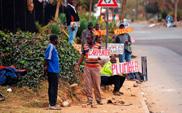
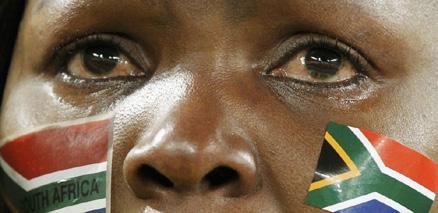 By Sivuyile Majikijela andNthabiseng Thalanyane
By Sivuyile Majikijela andNthabiseng Thalanyane
Mental health is a major global concern, with depression being the most common mental disorder. According to Dr Jerry Reed who deals with suicide cases, reveals that losing the ability to complete daily routine tasks can lead to depression.
Recognised as a leader in the field of suicide prevention, Dr Reed further said there could be other physical ailments such as the elderly not being able to drive, read, engage in conversation or other activities that allow a person to stay independent or find meaning.
His organisation, National Centre for Suicide Research & Prevention deals with violence and injury prevention. Dr Reed said: “ageing can also present transitions that are difficult to cope with. Approximately 60 per cent of adults live with a chronic disease such as arthritis, diabetes and high blood pressure and 58% have at least two of these”.
Psychologist and lecturer, Thabisa Ba kumeni, told Men’s Voice that mental illness and suicide cases amongst 50–60-year-old people are often a direct result of traumatic life events such as GBV and sexual abuse which are the leading factors of anxiety and depression. “There is a significant interlink between trauma and depression. Traumatic life-changing experiences such as enduring abuse from a partner, rape, gender-based violence and childhood trauma often put a person at risk of developing depression as an adult. These events harbour a person’s life and the risk of chronic depression increases with the number of traumatic events that one has experienced”.
Bakumeni added that the burden of debt has added to the woes that have been brought about by the Covid-19 pandemic.
The burden is felt more by men due to the prevailing stereotypes that frame them as the ‘head of the household ‘and the role of being the provider.
“They find themselves under immense financial stress because the pressures of be ing the provider are overwhelming, especially when they can’t pay bills and support their families. They then fall under what I call debt depression, where they end up having de pressive symptoms brought on by the emo tional stress of debt”, Bakumeni explained.
She emphasised that the Covid19 pan demic imposed a heavy economic burden on a lot of individuals. “The aftermath of the Co vid19 pandemic created enormous disruption in our lives, especially our financial security.
Some people lost their jobs and some never recovered, now imagine if you have all the financial freedom one day, and it has sud denly taken from you the next. This sudden change and uncertainty caused emotional strain, which often led to an increase in de nial, stress, anxiety and depression”.
Equally, this could lead to physical and emotional abuse as well. According to Lieu tenant Colonel Martins Mmamadisha, beyond mental illness, emotional abuse is another factor that contributes to suicide, which she described, as an ongoing process in which
one individual systematically diminishes and destroys the inner self of another.
She elaborated that the essential ideas, perceptions and personality characteristics of the victim are constantly belittled.
“Eventually the victim begins to experi ence this aspect of the self as seriously eroded or absent most of the victims end up taking their lives. According to the Lieuten ant Colonel. Every nine seconds a woman is beaten, this exposure to violence leads to an increased risk of suicidal behaviour in women. Women who are sexually abused show a 12-20 increase in suicide attempts”.
She further said in the first six months of this year, about 50% of suicide cases among women were largely due to them being abused by their partners. Psychologist Baku meni concurred that people in the age group between 50-60 have a higher risk of depres sion and suicide if they have a longstanding chronic or life-threatening illness.
“People who have chronic illnesses must adjust to the illness and the treatment. This affects them in many ways because I often find that some continue to be in denial even after receiving the results of the said illness. Sometimes, an illness can affect a person’s abilities, and independence and change the way they live and see themselves. These changes can cause sadness and hopeless ness.”
“Individuals that have marital and re lationship problems are most likely to end up having mental health issues. The most common issue is the divorce; going through a divorce can be stressful and can take a serious toll on one’s mental health. The process of a separation or divorce involves a great change that also signifies a major loss, sometimes individuals go through stages of grief and so it is common for individuals to exhibit symptoms of depression and suicide,” Bakumeni said.
 By Erica Cirino
By Erica Cirino
Mostof us have “lost it” during a big family argument or while being stuck in bad traffic on the way to work. While anger doesn’t feel good, it can help us feel motivated to change things that aren’t working for us, like relationship issues or uncomfortable work situations.
But anger is a strong emotion. If left unchecked, it can lead to unhappiness or a mental health condition. It can also cause you to act unreasonably or aggressively. This can result in social isolation, health problems, and abuse.
Some people are more likely to experience anger than others. People under extreme stress may have trouble controlling their anger. Researchers have found that children
with mental health conditions and adults with traumatic brain injuries are more likely to have overwhelming anger.
Help and support are out there. Re search has found that anger management exercises improved well-being and reduced the number of angry outbursts in each of these at-risk groups. And if you struggle to calm your anger, these exercises may help you, too.
Anger outbursts can cause harm to you and the people around you.
A good way to calm anger and prevent any harm is to use anger management exercises. These techniques work by first calming you down and then helping you move forward in a positive way.
Use the following anger management exercises any time it feels your anger is overwhelming until you feel calm:
When you’re angry, you might notice your breathing gets quicker and shallower. One
easy way to calm your body and reduce your anger is to slow and deepen your breathing.
Try breathing slowly into your nose and out your mouth. Breathe deeply from your belly rather than your chest. Repeat breaths as necessary.
Muscle tension is another sign of stress in the body that you may feel when you’re angry.
To help calm down, you may want to try a progressive muscle relaxation technique. This involves slowly tensing and then relax ing each muscle group in the body, one at a time.
Consider starting at the top of your head and moving to your toes, or vice versa.
Imagining a relaxing place may help you re duce your anger. Sit in a quiet, comfortable space from your memory and close your
eyes for a few moments. Let your imagina tion flow. Think about small details as you think of what that relaxing place is like. How does it smell or sound? Think about how calm and good you feel in that place.
Besides being healthy for your bodily func tions, regular exercise is very effective at reducing stress in the body and mind. Try to get some exercise every day to keep stress and anger at bay.
For a quick way to manage anger, go for a brisk walk, bike ride, or run. Or do some other form of physical activity when you feel anger growing.
Usually, people get angry about specific things over and over again. Spend some time thinking about what makes you angry. Make an effort to avoid or deal with those things, if possible.
For example, this might involve shutting the door to your child’s room when they don’t clean it instead of getting angry about the mess. Or it could mean using public transportation instead of driving to work if you’re easily angered by traffic.
When you’re in an angry argument, you might find yourself jumping to conclusions and saying things that are unkind. Mak ing an effort to stop and listen to the other
person in the conversation before reacting can help your anger drop and allow you to better respond and resolve the situation.
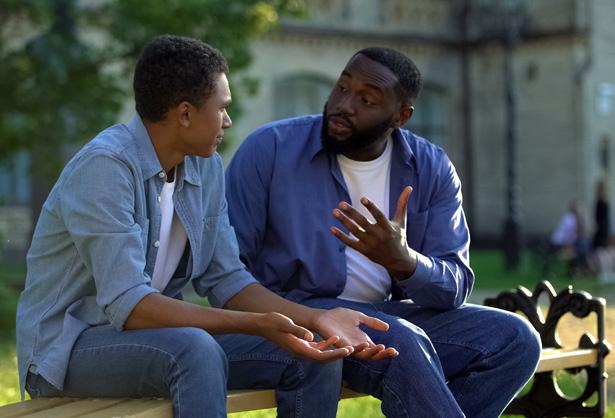
Think carefully before replying. Tell them you need to take a step away if you feel you need to cool down before you continue the conversation.
Anger can make you feel like things are worse than they really are. Reduce your anger by replacing negative thoughts with more realistic ones. You can do this by avoiding extreme words, such as “never” or “always,” when you think.
Other good strategies include keeping a balanced view of the world and turning your angry demands into requests instead.
Avoid dwelling on the same things
You may rehash the same situation that made you upset over and over again, even if the problem is resolved. This is called dwell ing or ruminating. Dwelling allows anger to last and could cause further arguments or other issues.
Try to move past the thing that caused your anger. Instead, try to take a look at the positive parts of the person or situation that made you upset.
When you get angry, your body tends to get very excited. Your heart rate, blood pres sure, breathing speed, and body tempera ture may increase. Your body also releases
certain stress hormones that put your body on high alert.
Pay attention to your body when you’re angry. Learn your body’s anger warning signs. Next time you feel these warnings, you can step away from the situation or try a relaxation technique.
Learning to healthfully manage your anger is a process that happens more quickly for some than for others. If you feel that your anger gets overwhelming or if it’s causing you to hurt yourself or those around you, it’s time to get expert help.
Talk to your doctor to get a referral to a psychiatrist or psychologist. A trained coun sellor can help you find a treatment plan that’s right for you.
Some common treatments for anger include a talk therapy technique called cog nitive behavioural therapy. It can help you identify your anger triggers and how to best deal with them.
A psychiatrist may also recommend antianxiety medication if overwhelming stress levels cause your anger.
Anger is a common and useful emotion everyone experiences. It’s also possible for anger to become overwhelming and cause problems sometimes.
Anger management exercises are useful tools that can help identify and manage an ger in a productive way. Getting expert help is a good way to address the anger that’s interfering with your quality of life.
– healthline.com

Just because I am a man, it does not mean she cannot hurt me. I am human too…but nobody believes me.